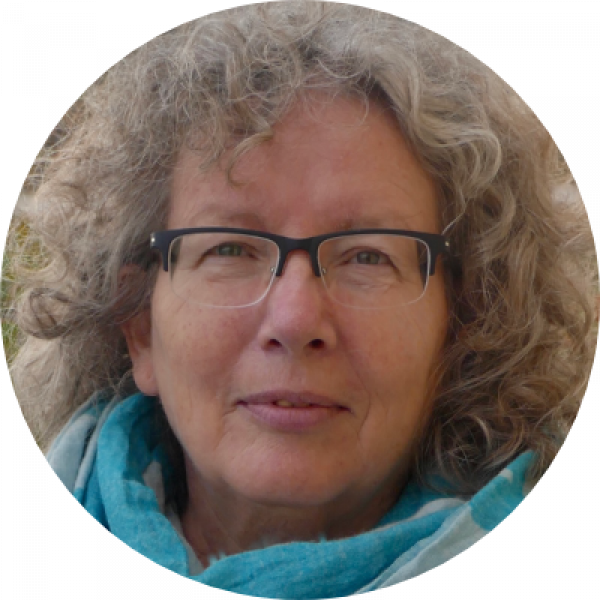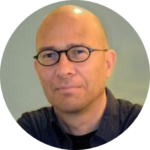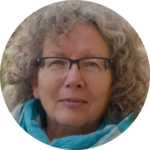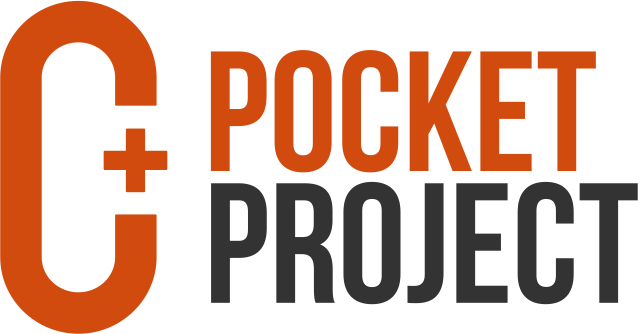Collective & Transgenerational Trauma in Germany
Lab Cycle Oct 2020 - July 2021 Report
Facilitators
Jürgen Wölfl & Sucha Gesina Wolters
Trainees
Julia Tzotchev, Ingrid Pickel, Ellen Schieß
LANGUAGE
German
Description
In this Lab we explored the collective and transgenerational trauma that is present in Germany. The topics which arose in this first lab cycle were the Second World War, Fascism, the Holocaust and the division of the nation into East and West Germany. For our exploration, we used embodied contemplative practices, attunement and the coherence of the group field as a vessel for what wanted to show itself. We endeavoured to find a good balance between expanding our perceptions, whilst respecting our limitations and boundaries, acknowledging their protective functions.
We started out with a group of 46 participants and completed with 36 participants, having on average around 33 participants part-taking in each session during the course of the Lab. We met for 11 group sessions overall, from November 2020 – June 2021, and triads were formed during our first four sessions.


We explored the following questions:
- What constitutes the historical background to current day Germany?
- How do collective and transgenerational traumas influence the construction of identity and the process of ‘othering’?
- How do collective and transgenerational traumas influence the development of the cultural architecture?
- How does our use of language reflect and reinforce the consequences of these traumas?
- How do collective and transgenerational traumas show up in times of crisis?
- Can coherent ‘we-spaces’ and a process of witnessing collective and transgenerational trauma lead to an integration and eventual healing of collective trauma?
Stages of our process as a group:
1. Synchronising & Resourcing
2. Meeting the Collective Trauma Landscape
3. Exploring Individual & Collective Conditioning
4. Listening to Ancestral Roots & Voices from the Field
5. Integrating & Restoring
6. Transforming & Meta-learning
Moments of Challenge
- To find the balance between that which was overwhelming and that which was under-challenging.
- To find a way between pushing and avoiding.
- The invisible undertow that so easily pulls us to look away again from difficult issues.
- Challenging after-effects – with personal trauma showing up – after the session on Operation Barbarossa.
- Even in writing this Lab report we felt tension in the team. One important aspect seemed to be the polarity between writing a “good” and coherent report with clarity and the energy of our endeavour, whilst respecting the fragility, incompleteness, and vulnerability that accompanied us throughout.
- Acknowledging that we still know so little, and trying to stay as humble as possible, knowing that we see and feel only a fraction of the whole picture, and even then we continue to see through our own filter systems.
MOMENTS OF GRACE
Below we share, in the words of our participants, some moments of grace from our Lab journey together:
- “To be part of a movement toward the numb, unseen, mute, and cruel, during the group process tuning in with the Operation Barbarossa.”
- “To feel that unbearable things can and should be seen.”
- “To see how the “water” becomes clearer, and the “fog” disappears when previously unspoken and unfelt aspects are named, voiced, felt and witnessed. A greater understanding arises for the connectedness of symptoms. Gratefulness for insights, deepening of understanding.”
- “During the Labs I became more aware of my own and the collective ambivalent relationship to Russia. Both the presence of a Russian-origin team member and the emergence of traumatic events during and after the Second World War within the Lab intensified the longing for reconciliation on the one hand, and on the other hand the simultaneity of distancing and a deep feeling of familiarity and closeness became more palpable.”
- “It was a moment of grace when, during my sharing, I could leave the frequency of my personal state (with an intense headache) and connect with the frequency of the Lab. That’s when the stuck energy from my head started to flow down and my spine felt like a freshly cleaned pipe where the light could flow freely again. I was completely free of pain after the meeting.”
- “The experience that my body might be overloaded by holding the light and the shadow and then realising that this is not my task; that I can rather be or hold the space in which the terror and the light can meet; I can devote myself to this encounter, but I cannot and do not have to make it.”
- “Feeling the love for this group.”
INSIGHTS
- An even greater appreciation for how important good preparation is. We dedicated a good amount of time for the Facilitation team to meet before each Lab group session.
- The importance of preparing the space in which the Lab takes place and to hold the container in the widest possible way.
- Additional Facilitation team meetings would have been helpful in order to share and witness our own standing in the field of trauma.
- The question arose: How does a conscious connection emerge from individual voices/experiences to the collective landscape? If this connection is not named by participants during the group process, would it be the Facilitation team’s job to reveal this connection?
- More sessions focusing on precise collective trauma topics and sharings in the whole group could deepen the awareness of the collective trauma field.
- We Germans often have a certain kind of roughness/directness that easily leads to talking “about” instead of talking from personal emotional and physical experiences. This can lead to the avoidance of relationing, both to oneself and to others.
- The sense of what is fascist and what is not, as well as the definition of the term, seems to blur and sometimes cause confusion.
- In one of our post-processing Lab sesssions, the Holocaust arose again, this time stronger, as something or someone that was missing and especially shedding light on all the children who were murdered and could not live their lives. After a moment of sitting with this, we returned to the question of why Holocaust issues came up so little during the sessions overall. Although we did touch upon the topic of being Jewish as well as the extermination of the Jews a few times, we did not go into these questions in depth. We were very concerned with our responsibility as Facilitators, as well as aware about our own feelings and tendencies to look away, and acknowledged fear and respect for the topic and for the question of how we want to deal with it in a future session or entire Lab cycle.
Our Lab Team

Sucha Gesina Wolters

Jürgen Wölfl
Kollektives & Transgenerationales Trauma in Deutschland
Leitung: Jürgen Wölfl & Sucha Gesina Wolters; Trainees: Julia Tzotchev, Ingrid Pickel, Ellen Schieß
Sprache: Deutsch
 Wir möchten Effekte von transgenerationalen und kollektiven Traumata in Deutschland erforschen. Was erscheint uns “normal”, ist aber eine Trauma-Folge? Durch welche Filter und Abwehrmechanismen schauen wir gewohnheitsmäßig? Welche Traumata stehen dabei im Vordergrund (bspw. WWII, WWI, Holocaust, Faschismus, Rassismus, Deutsche Teilung…)? Wir nutzen für unsere Erforschung verkörperte kontemplative Praktiken, Einstimmung und die Kohärenz des Gruppenfeldes als Gefäß für das, was sich zeigen möchte. Dabei möchten wir eine gute Balance finden zwischen der Erweiterung unserer Wahrnehmung und dem Respektieren unserer Limitierungen und deren schützenden Funktionen.
Wir möchten Effekte von transgenerationalen und kollektiven Traumata in Deutschland erforschen. Was erscheint uns “normal”, ist aber eine Trauma-Folge? Durch welche Filter und Abwehrmechanismen schauen wir gewohnheitsmäßig? Welche Traumata stehen dabei im Vordergrund (bspw. WWII, WWI, Holocaust, Faschismus, Rassismus, Deutsche Teilung…)? Wir nutzen für unsere Erforschung verkörperte kontemplative Praktiken, Einstimmung und die Kohärenz des Gruppenfeldes als Gefäß für das, was sich zeigen möchte. Dabei möchten wir eine gute Balance finden zwischen der Erweiterung unserer Wahrnehmung und dem Respektieren unserer Limitierungen und deren schützenden Funktionen.
Wir werden erforschen
- Was ist der historische Hintergrund in Deutschland?
- Wie beeinflussen kollektive und transgenerationale Traumata die Konstruktion von Identität und den Prozess des “Othering”
- Wie beeinflussen kollektive und transgenerationale Traumata die Entwicklung der kulturellen Architektur?
- Wie reflektiert und verstärkt unser Sprachgebrauch die Konsequenzen dieser Traumata?
- Wie zeigen sich kollektive und transgenerationale Traumata in Krisenzeiten (bspw. Covid-19, Klima-Krisen)
- Können kohärente Wir-Räume und der Prozess des Bezeugens von kollektivem und transgenerationalen Traumata zu einer Integration und letztlich zu einer Heilung von kollektiven Taumata führen?
Die Teilnehmer verpflichten sich:
- Daß sie frei vom Einfluss von Drogen sind.
- Daß jeder persönliche Austausch innerhalb dieses Labs vertraulich behandelt wird, die Namen der anderen Teilnehmer weder weitergegeben noch Informationen zu ihnen geteilt werden.
- Dass sie Selbstverantwortung für ihre Gesundheit übernehmen – dieses Lab bietet keinen Raum für Therapie oder Behandlung.
Sie werden eingeladen:
- zur Fähigkeit und der Bereitschaft, die eigene Präsenz im Gruppenfeld aufrechtzuerhalten und ihr die Priorität zu geben, selbst in triggernden oder herausfordernden Momenten.
- dieser Forschungsreise Zeit, Aufmerksamkeit und Liebe auch im Alltag zu schenken. Kontinuierlich an den Calls teilzunehmen
- zwischen den Calls die Themen und Bewegungen in Triadenarbeit weiter zu erforschen.
Max. Gruppengröße: 35
Zeit: 20 – 21.45 Uhr MEZ / Mitteleuropäische Zeit (Finde hier die Zeit an Deinem Standort)
Termine: Donnerstags, einmal Montags: 19. Nov, 10. Dez 2020; 7. Jan, 28. Jan, 18. Feb, 18. Mär, Mo (!) 12. Apr, 13. Mai, 3. Juni, 24. Juni 2021
Lab Team
 Jürgen Wölfl
Jürgen Wölfl
Psychologe und ausgebildeter Psychodrama-Therapeut. Jürgen arbeitet in eigener Praxis als Psychotherapeut, Trainer und Supervisor für Einzelpersonen, Paare, Gruppen und Teams. Sein besonderes Interesse gilt der Verbindung von Mystik, spiritueller Praxis und Psychotherapie/Psychologie. Seit 2008 ist er in der Assistentengruppe von Thomas Hübl und hat das Timeless Wisdom Training 3 begleitet. Er ist Mentor in Thomas Hübls Online-Kursen und hat das Pocket Training for Trauma Integration begleitet. Jürgen lebt in Berlin, Deutschland.
 Sucha Gesina Wolters
Sucha Gesina Wolters
ist Diplompädagogin und arbeitet seit 40 Jahren mit Menschen, davon lange Zeit in der Erwachsenenbildung u.a. als Foculiserin für Gemeinschaftsprozesse. Sie ist Forumsausbilderin (eine ritualisierte Kommunikationsform für Gruppen/Gemeinschaften ) und Somatic Experiencing Practitioner ( Trauma-Begleitung nach Peter Levine ) in eigener Praxis und in einer psychosomatischen Klinik. Seit 2006 ist sie Schülerin von Thomas Hübl und assistiert seit vielen Jahren in seinen Veranstaltungen sowie in der Somatic-Experiencing-Ausbildung. Und: “Ich möchte nie aufhören zu staunen.“
Jetzt für dieses Lab bewerben!
Bewerbungen für dieses Lab sind aufgrund der großen Nachfrage geschlossen.
Collective & Transgenerational Trauma in Germany
Facilitators: Jürgen Wölfl & Sucha Gesina Wolters; trainees: Julia Tzotchev, Ingrid Pickel, Ellen Schieß
Language: German
 We want to explore effects of transgenerational and collective trauma in Germany. What seems “normal” and is in fact trauma-informed? Through which filters or defense mechanisms do we look habitually? Which traumas seem to be in the foreground (e.g. WWII, WWI, Holocaust, Fascism, Racism, Division into east and west…) ? How do these inform us individually, our ways of relating, the systems in our country, our culture? Our exploration will involve embodied contemplative practices, attunement and the coherence of the group field as a vessel for what wants to be seen. We want to find a good balance between widening our perception and respecting our limitations and their protective functions.
We want to explore effects of transgenerational and collective trauma in Germany. What seems “normal” and is in fact trauma-informed? Through which filters or defense mechanisms do we look habitually? Which traumas seem to be in the foreground (e.g. WWII, WWI, Holocaust, Fascism, Racism, Division into east and west…) ? How do these inform us individually, our ways of relating, the systems in our country, our culture? Our exploration will involve embodied contemplative practices, attunement and the coherence of the group field as a vessel for what wants to be seen. We want to find a good balance between widening our perception and respecting our limitations and their protective functions.
We will be exploring
- What constitutes the historical background in Germany?
- How do collective and transgenerational traumas influence the construction of identity and the process of ‘othering’
- How do collective and transgenerational traumas influence the development of cultural architecture?
- How does our use of language reflect and reinforce the consequences of these traumas?
- How do collective and transgenerational traumas show themselves in times of crisis (e.g. Covid-19,climate emergencies)?
- Can coherent we-spaces and a process of witnessing collective and transgenerational traumas lead to an integration and eventual healing of collective trauma?
Participants are asked to commit to
- Be willing to maintain and prioritize a present awareness in the group field even in triggering or in challenging moments.
- Give this explorative journey time, attention and love within your daily life.
- Engage On engage in triad work on a voluntary basis between the calls.
- Ensure to be free from the influence of drugs.
- Assume confidentiality – all personal sharing within this Lab will be kept confidential and names of other participants will not be shared, nor will they be described.
- Assume self-responsibility for your health – this Lab does not provide therapy or treatment.
Max. group size: 35
Time: 8 – 9.45 pm Central European Time / Berlin-Time (Please check here to find the time in your location)
Dates: Thursdays, Nov 19, Dec 10 2020; Jan 7 & 28, Feb 18, Mar 18, (Monday) Apr 12, May 13, Jun 03, Jun 24 2021
Lab Team
 Jürgen Wölfl
Jürgen Wölfl
Psychologist and trained psychodrama therapist. Jürgen works in his own private practice as a psychotherapist, trainer and supervisor for single persons, couples, groups and teams. His particular interest is the combination of mysticism, spiritual practice and psychotherapy/psychology. Since 2008 he has been in Thomas Hübl’s Assistants Group and accompanied the Timeless Wisdom Training 3. He is mentor in Thomas’s online courses and has accompanied the Pocket Training for Trauma Integration. Jürgen lives in Berlin, Germany.
 Sucha Gesina Wolters
Sucha Gesina Wolters
is a certified pedagogue and has been working with people for 40 years, including a long time in adult education, among other things as a foculiser for community-building processes. She is a “Forum” trainer (a ritualized form of communication for groups and communities) and Somatic Experiencing Practitioner (trauma counseling according to Peter Levine) in her own practice and in a psychosomatic clinic. Since 2006 she has been a student of Thomas Hübl and has been assisting him in his events and in the Somatic Experiencing training for many years. And: “I never want to stop being amazed.”

